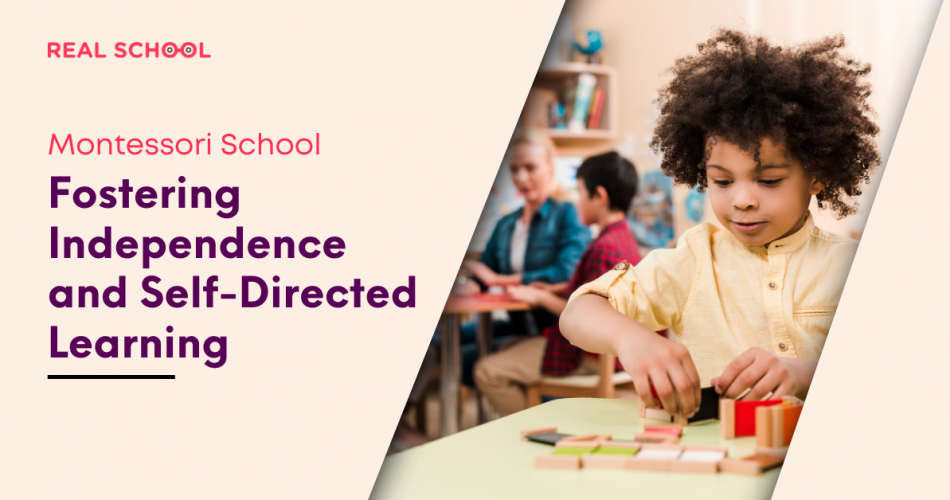Introduction
In the world of education, Montessori schools have gained significant recognition for their unique approach to learning. Montessori education focuses on fostering independence and self-directed learning in children. This article explores the principles and methods of Montessori schools and highlights the benefits they offer to young learners.
Table of Contents
What is Montessori Education?
The Role of the Montessori Teacher
Montessori Classroom Environment
Hands-on Learning Materials
Self-Directed Learning
Promoting Independence
Individualized Learning
Mixed-Age Classrooms
Emphasis on Practical Life Skills
Montessori Assessment and Evaluation
Benefits of Montessori Education
Montessori Education for Different Age Groups
Integrating Montessori Principles at Home
Common Misconceptions about Montessori Education
Conclusion
- What is Montessori Education?
Montessori education is an educational approach developed by Dr. Maria Montessori in the early 20th century. It emphasizes child-centered learning, where children actively engage in their education and take responsibility for their own learning.
- The Role of the Montessori Teacher
In a Montessori classroom, the teacher takes on the role of a facilitator and guide rather than a traditional instructor. The teacher observes and supports each child’s individual progress and helps create an environment conducive to learning.
- Montessori Classroom Environment
Montessori classrooms are carefully designed to encourage exploration and independence. They are usually spacious, orderly, and filled with a wide range of educational materials that cater to various learning domains.
- Hands-on Learning Materials
Montessori education places a strong emphasis on hands-on learning. The classrooms are equipped with specially designed materials that engage children in sensory experiences and allow them to learn through their senses.
- Self-Directed Learning
Montessori education encourages self-directed learning, where children have the freedom to choose their activities based on their interests and developmental needs. This approach fosters a sense of autonomy and intrinsic motivation in learners.
- Promoting Independence
One of the core principles of Montessori education is to foster independence in children. The classrooms are arranged in a way that enables children to take care of their personal needs and develop life skills such as dressing themselves, preparing snacks, and cleaning up after activities.
- Individualized Learning
Montessori education recognizes that each child is unique and develops at their own pace. The curriculum is tailored to meet the individual needs of each learner, allowing them to progress according to their abilities and interests.
- Mixed-Age Classrooms
Montessori classrooms often include students of different ages. This multi-age setting promotes collaboration, peer learning, and social development. Older students act as mentors and role models for younger ones, creating a supportive community of learners.
- Emphasis on Practical Life Skills
Montessori education integrates practical life skills into the curriculum. Children engage in activities that enhance their fine motor skills, self-care, and social etiquette. These skills lay a foundation for independence and self-confidence.
- Montessori Assessment and Evaluation
Unlike traditional grading systems, Montessori schools focus on holistic assessments that consider a child’s overall development. Teachers observe and document a child’s progress based on their individual milestones and achievements.
- Benefits of Montessori Education
Montessori education offers several benefits to children. It promotes critical thinking, problem-solving skills, creativity, and a love for learning. It also cultivates qualities such as empathy, self-discipline, and resilience
- Montessori Education for Different Age Groups
Montessori education is available for children from infancy to adolescence. Each age group has a curriculum and learning materials tailored to their specific developmental needs, ensuring a seamless progression of learning throughout the years.
- Integrating Montessori Principles at Home
Parents can incorporate Montessori principles into their home environment. Providing opportunities for independent play, creating a structured but flexible routine, and offering age-appropriate materials can support a child’s learning and independence.
- Common Misconceptions about Montessori Education
There are some common misconceptions about Montessori education. It is often misunderstood as a lack of structure or a laissez-faire approach. However, Montessori education is based on well-defined principles and a carefully crafted learning environment.
- Conclusion
Montessori schools have proven to be effective in fostering independence and self-directed learning in children. By embracing the principles of Montessori education, children can develop essential skills, cultivate a love for learning, and become lifelong learners.
FAQs (Frequently Asked Questions)
What age groups can benefit from Montessori education?
How do Montessori classrooms promote independence?
What is the role of a Montessori teacher?
Can Montessori principles be applied at home?
Are Montessori schools only suitable for certain types of learners?







